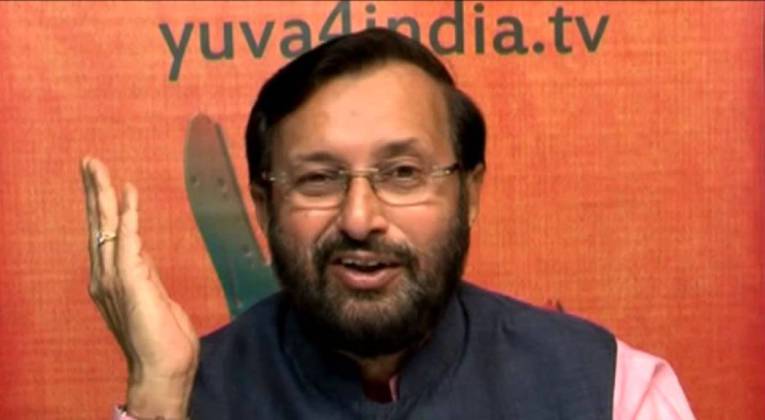
New Delhi: On Wednesday, newly-appointed human resource development (HRD) minister Prakash Javadekar had a close door meeting with the BJP’s ideological fount, the Rashtriya Swayamsevak Sangh (RSS), and some of its affiliate organisations, to seek their suggestions on the draft national education policy (NEP).
According to sources in the HRD ministry, the six-hour meeting was attended by senior functionaries from the RSS, the Akhil Bharatiya Vidyarthi Parishad (AVBP), Rashtriya Shaikshik Mahasangh, Bharatiya Shikshan Mandal, Vidya Bharati, Shiksha Bachao Andolan, Sanskrit Bharati and Itihas Sankalan Yojana. BJP president Amit Shah was also present at the meeting, Javadekar’s first ever interaction with these organisations as HRD minister.
Ministry sources said the meeting was called to get the Sangh and its affiliate organisations’ suggestions on the new policy.
“Earlier this month, some points of the draft policy have been put on the ministry website for the public to see and offer suggestions. The ministry is set to reach out to individuals across the country on the policy through over 2.75 lakh direct consultations besides taking citizens’ input online. Wednesday’s meeting was a part of this consultative exercise,” the sources told The Wire.
Giving details of what emerged at the meeting, ABVP national joint organising secretary K.N. Raghunandan told The Wire, “Among other suggestions, we want a national commission for education on the lines of the Election Commission of India. The earlier HRD minister (Smriti Irani) accepted our suggestion and included it in the draft policy. But we now see that it is not what we wanted.”
“We suggested that the commission should have certain mandatory powers along with some powers to suggest to the states on their education policies. The governments and HRD ministers will come and go but the policies should continue. We wanted a commission which will ensure that. But the commission in the draft policy says it should give a report to the parliament every two and a half years on the state of education. Apart from it, it has no other powers,” Raghunandan added.
Although the time period for submission of views and suggestions by citizens groups and interested organisations was to expire this month, Javadekar, on July 26, extended the time till August 16.
The Centre’s present education policy was formulated in 1986 and was revised in 1992.
According to the draft NEP, “Since the formulation of the National Policy on Education, 1986/92, significant changes have taken place in India and the world at large. India’s political, social and economic development is passing through a phase which necessitates a robust and forward looking education system.”
The draft says, “The National Education Policy, 2016 envisions a credible education system capable of ensuring inclusive quality education and lifelong learning opportunities for all and producing students/graduates equipped with the knowledge, skills, attitudes and values that are required to lead a productive life, participate in the country’s development process, respond to the requirements of the fast‐changing, ever‐globalising, knowledge‐based societies, and developing responsible citizens who respect the Indian tradition of acceptance of diversity of India’s heritage, culture and history and promote social cohesion and religious amity. This vision recognizes the central role of education in India’s social, economic, political, and cultural development.”
[Source:- The Wire]


